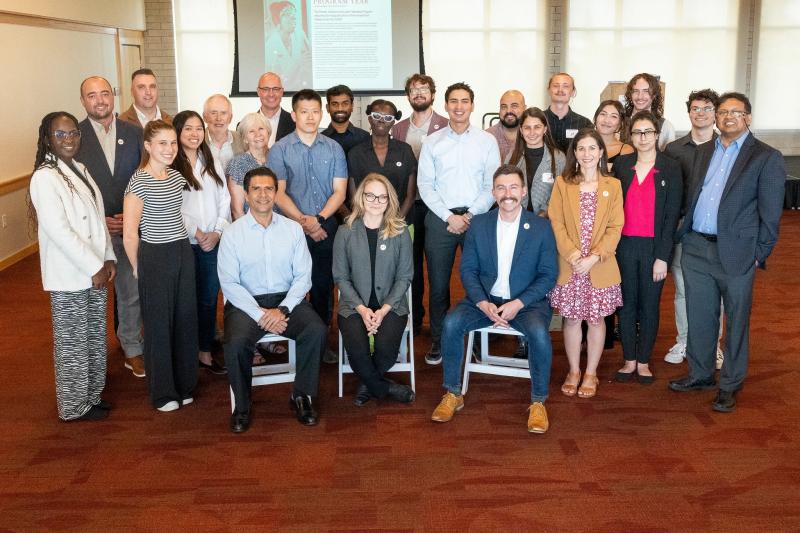Pardee Institute Celebrates Its “Institute” Designation
The Pardee Institute (formerly Pardee Center) celebrated its recent name change to the “Frederick S. Pardee Institute for International Futures” following its designation as a DU Research Institute in October 2023. The Pardee Institute is honored to be one of just six organized research units across the University of Denver formally designated as a DU Research Institute distinction. This designation affirms Pardee's place at DU as a serious contributor to the Institution's body of research and impact on its community and constituents.
The event kicked off with opening remarks from a series of key Pardee constituents and supporters internal to DU.
Speaking at the event, Corinne S. Lengsfeld, Senior Vice Provost, Research and Graduate Education at the University of Denver, commended the Pardee Institute for affecting meaningful change through its research. “I stood on the stage to celebrate what they did for the Yemen civil war, and their report was used as the basis for a ceasefire. Which is really cool, and its impact is undeniable,” Lengsfeld noted.
According to Lengsfeld, the research Institute designation on the University of Denver campus celebrates the impact and performance from which the university has relied on and built its own reputation from. “That is what the Pardee Institute is,” she said.
In his remarks, Barry Hughes, the Pardee Institute Founding Director, recognized the Institute's progression from a Center to an Institute as a “collective enterprise.” He paid tribute to the Pardee Institute’s longtime benefactor, Frederick S. Pardee, for his friendship and shared interest in the Institute's work through funding support. Barry further celebrated all employees at the Institute for their collective effort in expanding research and scholarship.
Joining in the celebration, Professor and Associate Dean for Faculty and the Director of the Scrivner Institute of Public Policy at the Josef Korbel School of International Studies, Naazneem Barma, noted that the Pardee Institute has been an integral component of the Korbel School. “The Pardee Institute generates some vibrant agendas and a huge number of publications on the core concerns that the Korbel school grapples with: democracy, peace and conflict, sustainability, and diplomacy - all using the IFs model,” Professor Barma noted.
Following the remarks, guests were encouraged to learn more about recent and ongoing research projects and works. Numerous information tables filled the room, with each dedicated table featuring a different research project and staffed by students and staff who work on them. From groundbreaking geopolitical research, such as the Perceived Mass Atrocities Dataset (PMAD), to recent sustainable development work in Yemen, guests had the opportunity to interact with Pardee’s team of researchers and explore its body of work.
Over 40 years ago, Barry Hughes began developing the model International Futures (IFs) computer simulation as an educational tool to help people think about long-term global futures. The Pardee Institute was established in 2006 with support from Frederick S. Pardee. Since its inception, the Institute has received generous gifts from Frederick S. Pardee and his estate that provided resources to establish the Institute within the Josef Korbel School for International Studies, allowed further development and use of IFs, and expanded the breadth, depth, and impact of the Pardee Institute’s body of work.


